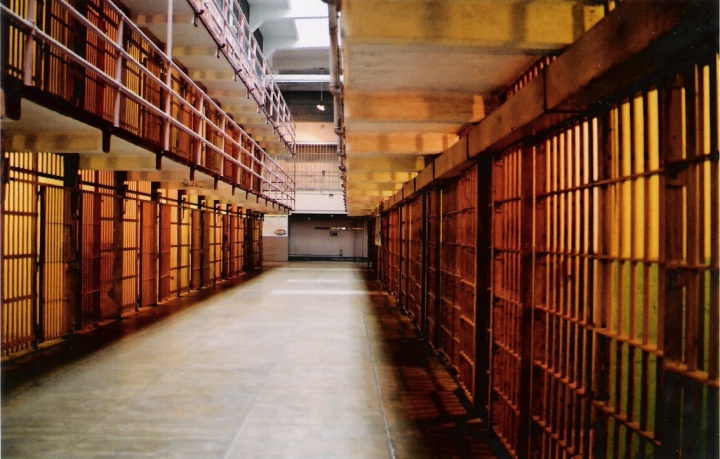The Gospel Inside Prison Walls

According to a recent assessment, the gospel touches the hands of about 10,000 English-speaking and 1,100 Spanish-speaking prisoners in hundreds of prisons all around the United States, through literature and personal correspondence from the United Church of God.
When a prisoner writes the Church or sends in a literature request by mail, home office employee Barbara Antion receives it and processes about 90 percent of it. She reads the hundreds of letters we receive each month from prisoners and adds or updates their information in our system. She files their literature request to be sent, checks their previous request history and makes sure that duplicate material is not sent.
The remaining 10 percent of the incoming prisoner mail are letters and requests that need personal responses and are delivered to Alec Surratt, a facilitator for surface mail requiring PCD (Personal Correspondence Department) attention. He summarizes the questions, the writer’s history of literature requests and adds a biography of the prisoner when available in a cover sheet that accompanies the letter to PCD. This helps to organize and prioritize the responses needed.
The prisoner mail and cover sheet are then given to an appropriate responder in the PCD. Alec Surratt works in close cooperation with Chris Rowland, administrator of Ministerial and Member Services, and Don Hooser, a full-time writer in the media department, to respond to the prisoner with personal counsel. These letters are answered using wisdom and discernment, according to the truth of God and the intentions of the sender.
There are three main ways a prisoner comes into contact with the truth. The first is through word of mouth of fellow prisoners who are in contact with the Church through our literature and personal correspondence. Inmates will share our literature with one another, and it is best received when it is given by a hard copy that can be held in their hands. A second way is through the Beyond Today television program that is usually viewed as one of the many Sunday morning religious programs. The third way is upon request from the prison chaplain or the person in charge of religious affairs, who requests bulk copies of our literature to be placed in their libraries, reading rooms, etc. Occasionally interested readers will fill out the cards in our literature, but a letter or a note in the mail are the most common methods used to make a request.
There are some limitations on what we can send to prisoners depending on the institution and its regulations. For example, some can only receive three booklets per month, and in really strict prisons our literature cannot be received at all simply because it contains staples. Some cannot receive sermons via CDs or DVDs because they can be broken and used as weapons. In a rare case, our sermon videos are permitted on an in-house prison network for Sabbath viewing.
When working with prisoners, one should keep both eyes open since inmates sometimes use feigned religious interest as an avenue of early release. Sadly, a sincere change of heart and mind—true conversion—is a rarity. Approximately 95 percent of parolees never contact us after release.
But there are instances when a prisoner will take advantage of the time given, conduct an inventory of their life, and seriously strive for the truth and a better way of life. In these instances, if they have received an ample amount of material and have steady and healthy contact with the PCD, a request for a ministerial visit may be the result.
Once the paperwork is completed and approval from the prison is received, the minister is given the prisoner’s background information and details about their specific situation. A prisoner may then receive face-to-face counsel, and if they are truly interested in baptism and the gospel, further steps in counseling may be taken. Before any serious steps are taken, prisoners must be aware of what they are committing to and show the fruits of repentance. There are occasions when a prisoner will be baptized while in prison, attend church on parole, or be baptized once they are released. It all depends on the length of their sentence and circumstances.
While we can always do more, the gospel is being made available. We continue to support the preaching of the gospel, rely on God’s provisions and wisdom and actively wait upon God’s will to call. “We do get through the prison walls,” said Mr. Surratt, “and we do have a presence.” May God continue to bless the work and our efforts to preach the gospel to this afflicted world.


